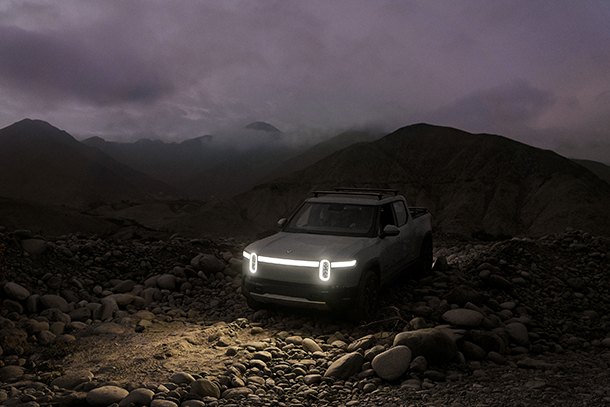Are EV Batteries an Environmental Hot Mess?
Are EV batteries an environmental hazard? The European Commission (EC) is proposing stricter regulations on EV battery sustainability. A 2006 Battery Directive dealt with safe recycling and disposal of Pb-acid and Ni-Cd batteries when Li-ion batteries used in electric vehicles (EVs) and hybrids were still in their infancy. These new rules will supposedly improve Li-ion batteries by reducing their carbon footprint, hazardous material use, and increasing responsibly-sourced material usage.
Before applauding the EC on their environmental advocacy, realize this is commerce-driven. After a three-year period of increased investment into developing a Li-ion battery industry in Europe, the governments and automotive OEMs became aware that in starting from scratch, European battery manufacturers were competing against well established Asian battery giants with decades of R&D and manufacturing experience.
Providing batteries with a lower carbon footprint and more sustainable, transparent material use may be a strategy that differentiates the Europeans from companies such as LG Chem, Panasonic, or Samsung. Whether this provides them with an advantage, having designed-in renewable power use and sustainability strategies, remains to be seen.
To minimize the impact of Li-ion batteries, stricter recycling requirements on Li-ion battery collection rates have been proposed. Manufacturers would be required to include recycled materials, including four percent lithium, 12 percent cobalt, and 20 percent nickel. Added to a 100-percent EV battery collection rate, removable batteries in consumer devices such as smartphones may be required. While EV battery volume will eventually dwarf that from consumer devices, this is not the case yet. Batteries in consumer devices rich in cobalt could be a valuable resource if they can be collected.
The EC also called attention to the need for better performing batteries. Greater specific energy and longer-lasting batteries would reduce the consequences of battery production and use. Improving battery performance while reducing energy consumption, or the use of hazardous materials such as cobalt, is not easy. Decreasing cobalt content may result in lower cycle life, but what are the environmental trade-offs? The discussion around the impact of Li-ion batteries continues as battery materials and design innovations are taking place.
How will we recycle tons of EV batteries past their prime? The world’s Li-ion production capacity has increased tenfold over the past decade to meet the demand for EVs. Now that the first EVs produced are beginning to reach their end-of-life, spent batteries are just beginning. This will only get worse as more EVs hit the road. The International Energy Agency predicts an 800 percent increase in EVs over the next decade, each car with thousands of cells. This is what Wired called an ‘e-waste time bomb’ and lithium-ion recycling is the only way to disarm it.
Maximizing environmental benefits while minimizing any repercussions from Li-ion batteries should be the goal, not profitability. The opportunity exists to do this now while we are at the early stages of an industry forecast for substantial growth, and hopefully, there is a collective will to make this happen.
[Images: Rivian]
With a father who owned a dealership, I literally grew up in the business. After college, I worked for GM, Nissan and Mazda, writing articles for automotive enthusiast magazines as a side gig. I discovered you could make a living selling ad space at Four Wheeler magazine, before I moved on to selling TV for the National Hot Rod Association. After that, I started Roadhouse, a marketing, advertising and PR firm dedicated to the automotive, outdoor/apparel, and entertainment industries. Through the years, I continued writing, shooting, and editing. It keep things interesting.
More by Jason R. Sakurai
Latest Car Reviews
Read moreLatest Product Reviews
Read moreRecent Comments
- Ajla My understanding is that the 5 and 7-Series cater almost exclusively to the Chinese market and they sell them here just so they don't look weak against Mercedes and Audi.
- EBFlex Interesting. We are told there is insatiable demand for EVs yet here is another major manufacturer pivoting away from EV manufacturing and going to hybrid. Did these manufacturers finally realize that the government lied to them and that consumers really don’t want EVs?
- Kwik_Shift_Pro4X What's worse than a Malibu?
- MaintenanceCosts The current Malibu is poorly packaged; there's far more room inside a Camry or Accord, even though the exterior footprint is similar. It doesn't have any standout attributes to balance out the poor packaging. I won't miss it. But it is regrettable that none of our US-based carmakers will be selling an ordinary sedan in their home market.
- Jkross22 You can tell these companies are phoning these big sedans in. Tech isn't luxury. Hard to figure out isn't luxury.This looks terrible, there are a lot of screens, there's a lot to get used to and it's not that powerful. BMW gave up on this car along time ago. The nesting doll approach used to work when all of their cars were phenomenal. It doesn't work when there's nothing to aspire to with this brand, which is where they are today. Just had seen an A8 - prior generation before the current. What a sharp looking car. I didn't like how they drove, but they were beautifully designed. The current LS is a dog. The new A8 is ok, but the interior is a disaster, the Mercedes is peak gaudy and arguably Genesis gets closest to what these all should be, although it's no looker either.



































Comments
Join the conversation
“Are EV Batteries an Environmental Hot Mess?...” Rare Earth says YES.
Environmentalists: Fossil fuels negatively affect the planet. Batteries: Hold my cable...